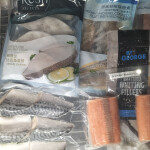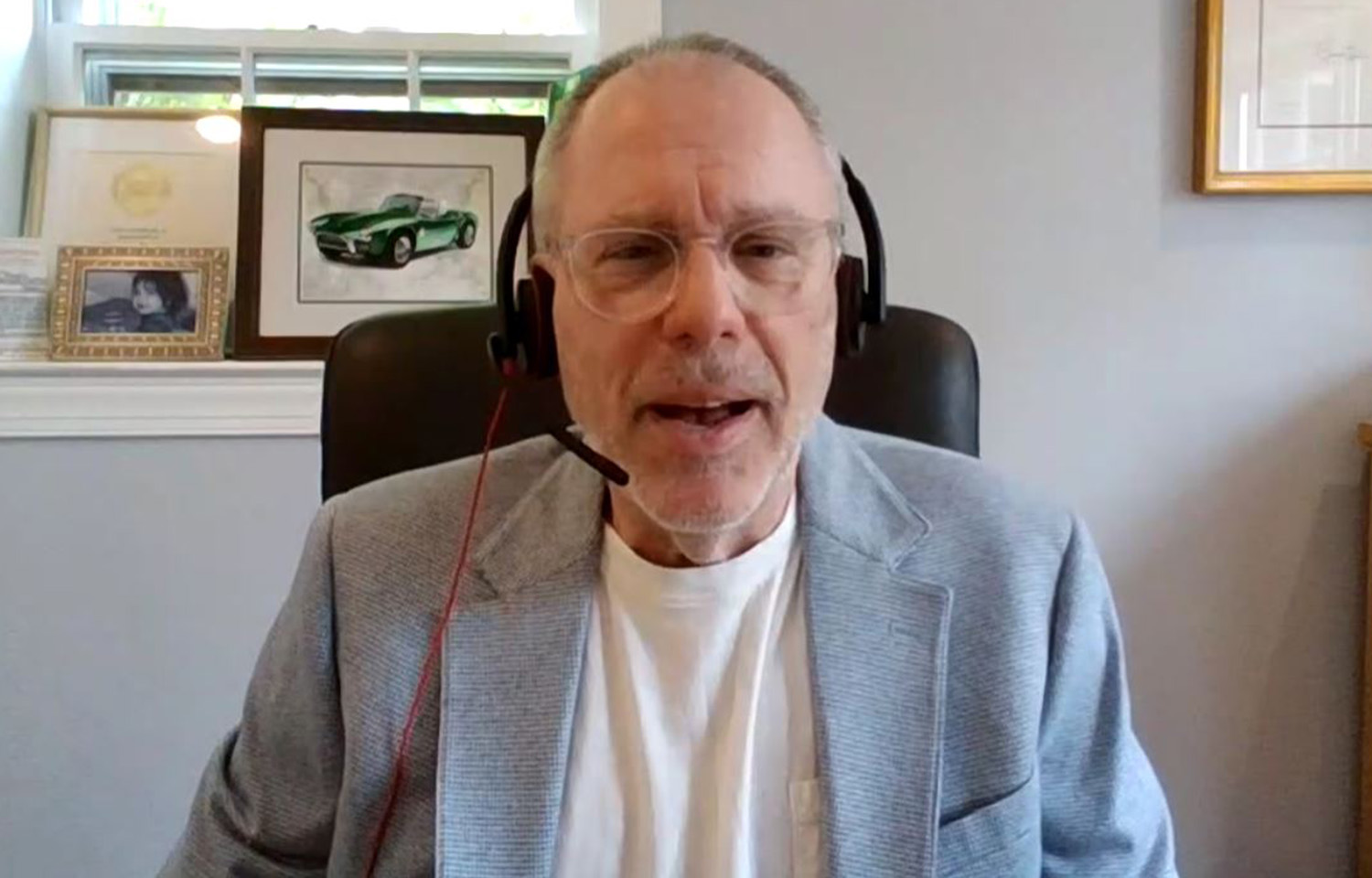Dean Pinkert joined the Chicago, Illinois, U.S.A.-based Corporate Accountability Lab, a non-governmental organization dedicated to advancing global human rights and environmental sustainability, as a special advisor in November 2021. He was one of the authors of “Hidden Harvest: Human Rights and Environmental Abuses in India’s Shrimp Industry,” a report released 20 March that presented evidence of labor issues at Indian shrimp hatcheries, farms, peeling sheds, and processing plants, as well as mangrove destruction and water contamination from shrimp farm effluent.
SeafoodSource: Why did CAL decide to do such an in-depth investigation of India’s shrimp industry?
Pinkert: Forced labor is very close to the heart of CAL’s mission. We style ourselves as a human rights organization and also an organization that is interested in fostering a sustainable environment. So, when we became aware of the possibility that there were forced labor issues in India’s shrimp industry, we started to look very seriously into that.
I think that you also have to at least understand one piece of context, which is that the shrimp industries in other countries, [including] Bangladesh, Cambodia, China, Thailand, and Vietnam, have previously faced a lot of criticism from human rights groups and investigative activities focused on labor abuses, including forced labor, but India had not. When there's forced labor or environmental abuses in an industry and it looks like CAL can add value because those issues haven't been fully investigated by human rights groups in the past, CAL is going to jump in and do it.
SeafoodSource: For those who haven’t read the report, how much concern should the seafood industry have about the situation in India?
Pinkert: I think they should have a lot of concern about the situation in India. If you look back historically, there were lots of questions that were raised about the shrimp industry in Thailand.
When those questions were raised, whether it was about labor practices or environmental practices, there was a very quick shift over from Thai supply to Indian supply, resulting in India becoming a supplier of 40 percent of shrimp imports into the United States. So, there is an ability for global supply chains to respond to these types of problems, but in that case, the response entailed moving sourcing from one country to another country. We think there is a better way to respond. The response doesn’t have to be purchasers pulling out of India, but they've got the leverage they could use to clean things up and improve the lives of the workers there.
SeafoodSource: What's your hope or goal with the report?
Pinkert: The goal is multifaceted. One aspect of it is to raise public awareness of what's going on in this industry in India, and when I say public awareness, it's not just awareness of the general public but awareness of members of [U.S.] Congress ... to address these issues in the supply chain.
I'll give you an example. The report talks about who's buying these products, and it is, of course, big purchasers like Walmart, Target, and Costco. But, it's also entities that sell their products to the U.S. government. So, if the U.S. government is focused on trying to clean up the supply chain, procurement contracts are an area I hope we would make some progress in.
For the big purchasers, [they] can do much more to police their supply chains to make sure that they are not exposed directly or indirectly to forced labor in the supply chain. They have tremendous leverage in the supply chains, so getting them to pay attention to this issue could have a large impact. When those big commercial purchasers see the report and what's going on in their supply chains, we hope they lean on their suppliers to clean up their practices. Part of that is making sure that they're compensating their suppliers sufficiently so that the suppliers are able to clean up their practices.
SeafoodSource: Choice Canning Vice President of Sales and Procurement Jacob Jose told SeafoodSource that “Forced labor doesn't exist in India.” What is your response to that statement?
Pinkert: Is he denying that debt bondage is common in the industry? Is he denying that company housing is guarded with workers having very limited ability to come and go as one pleases? Is he denying that vulnerable migrant populations, who may not speak the predominant language or who may be from the Dalit caste, are being put in dangerous working conditions?
I don't know how he could deny the debt bondage point. I don't know how he could deny the exploitation of vulnerable migrant population. In many cases, [shrimp sector] workers don't know what they're being paid for their labor. They're being paid through a third party, the third party is taking a cut, and [workers] have no idea what they're entitled to. Dangerous working conditions are ubiquitous in this industry.
SeafoodSource: Some Indian shrimp industry executives have responded to the CAL report by saying it misunderstands cultural norms in India and the realities of the business climate there. Do you agree?
Pinkert: First of all, this is not CAL's first rodeo; we’ve done lots of previous reports on countries all over the world, including South and Southeast Asia. We are definitely aware of conditions in India and in other countries. A lot of our report measures current conditions in the industry with existing laws and regulations that they have on the books in India and demonstrates that they are not being followed or enforced. We want to make sure that the systemic issues are addressed so that the suppliers can do right by their workers and stay in the U.S. market; that's the goal. It's not to drive Indian shrimp suppliers out of the U.S. market. It's to keep them in the U.S. market, keep the workers adequately compensated, and to keep working conditions at a humane level to eliminate forced labor and environmental degradation in the supply chain.
We say over and over again in the report that the problems we're identifying are systemic and are the result of cost-cutting throughout the supply chain. That part of that cost-cutting is generated by the big purchasers – in large part big U.S. purchasers. We are aware of the situation that some of these suppliers find themselves in, and that is one of the reasons why we so strongly emphasize the role these big purchasers must play in this process.
SeafoodSource: The CAL report also dives into issues of water pollution due to effluent from shrimp farms harming the water supplies of local communities in India. What are the environmental issues you found that could violate the sustainable seafood sourcing policies of the big U.S. retailers?
Pinkert: There is destruction of the essential mangrove and wetland habitats and polluting of the community water supplies. When you lose that vibrant ecosystem along the coastline, it's not like you can just bring it back the next year or the year after that. There needs to be concern about those communities, that coastline, and that ecosystem.
SeafoodSource: The CAL report interviews numerous workers in shrimp-processing facilities, including managers. How did CAL obtain this level of sourcing?
Pinkert: We really pride ourselves on the level of detail and the investigatory depth that we were able to achieve in this case. CAL seeks to develop relationships with folks on the ground in the countries that we're looking at, and then we get information from them that leads to additional requests for information. In this case, CAL staff made trips to India to look at conditions over there, along with the work of affiliated investigators.
I can't go into great detail about our sources and methods, but I can tell you we're really proud of the amount of work that we put into this; the amount of depth that we were able to achieve in the report is something we’re very proud of. The goal was to provide a substantial enough amount of information to make it unequivocal that anyone reading the report would get an unambiguous idea of what is really going on in India.
SeafoodSource: The CAL report also found weaknesses in social auditing conducted by seafood certification bodies. Given previous shortcomings of certification schemes and auditors in China, as uncovered by the Outlaw Ocean Project, do you question the worth of Indian shrimp farm and processing facility certifications?
Pinkert: Based on our findings, we're concerned about the structural flaws in their social auditing models. It doesn't mean that the social auditors never get anything right, and it doesn't mean that they're intentionally obfuscating. What it does mean is that in many instances, they're hired by the folks or the companies that are the subject of concern, and the social audit process gives too much leverage to the supplying company itself.
We saw examples where the social auditors are put on their back foot by the process and can't thoroughly investigate the kinds of issues we're talking about given the structural elements of the process. I'm not saying that they couldn't do better, but the structural elements of the process really limit them, and it makes it very difficult to rely on the results of their social audits as a result.
SeafoodSource: Do you think your report and other reports that have been published recently investigating problems in India’s shrimp industry will create change?
Pinkert: The pressure that forces change is going to come from U.S. buyers. The buyers now have a lot of information that shows that this industry violates their codes of conduct and their social and labor standards. So, what are they going to do about it? We'll see what happens there.
We also want to get the U.S. government into the mix on this. We want to make sure that the public is aware of what they're eating, how it was produced, and what impacts it's having on the environment in India. It's also important that enforcement not just be limited to one end of this supply chain. There should be enforcement of those laws and regulations in India, as well.
If the product is produced under good labor conditions with no forced labor or environmental destruction, market access should be possible. It's not about trying to deprive those industries of the ability to compete fairly in the marketplace, but given the conditions for the workers in the industry, which are just almost unimaginably bad, I believe a response is warranted.








